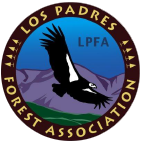Fremont Trail - Los Padres National Forest
Trail Distance 3.81 Miles
The Fremont Trail connects East Camino Cielo Road with Fremont Campground on Paradise Road. The Fremont trail has beautiful view of the Santa Ynez River Valley.
The Fremont camp was constructed by the CCC in 1935. It is named for John C. Fremont who in 1846, led an armed force near this camp as he crossed San Marcos Pass. Fremont's goal was to engage the Mexican Army in the vicinity of Los Angeles. Crossing the pass on Christmas, the group was drenched by a strong storm. They captured Santa Barbara without opposition as all the men of the town were down in the Los Angeles area.
John Charles Frémont or Fremont (January 21, 1813 – July 13, 1890) was an American military officer, explorer, and politician who became the first candidate of the anti-slavery Republican Party for the office of President of the United States. During the 1840s, when he led four expeditions into the American West, that era's penny press and admiring historians accorded Frémont the sobriquet The Pathfinder.
During the Mexican–American War, Frémont, a major in the U.S. Army, took control of California from the Bear Flag Republic in 1846. Frémont then proclaimed himself military Governor of California; however, for that he was convicted in court martial for mutiny and insubordination. After President Polk commuted his sentence, Frémont led a fourth expedition, which cost ten lives, seeking a rail route over the mountains around the 38th parallel in the winter of 1849. He retired from military service and settled in California. Frémont acquired massive wealth during the California Gold Rush, but he was soon bogged down with lawsuits over land claims, between the dispossession of various land owners during the Mexican–American War and the explosion of Forty-Niners immigrating during the California Gold Rush. These cases were settled by the U.S. Supreme Court allowing Frémont to keep his property. Frémont became one of the first two U.S. senators elected from the new state of California in 1850. He was the first presidential candidate of the new Republican Party, carrying most of the North. He lost the 1856 presidential election to Democrat James Buchanan when Know-Nothings split the vote and Democrats warned his election would lead to civil war.
During the American Civil War, he was given command of Department of the West by President Abraham Lincoln. Although Frémont had successes during his brief tenure as Commander of the Western Armies, he ran his department autocratically, and made hasty decisions without consulting Washington D.C. or President Lincoln. After Frémont's emancipation edict that freed slaves in his district, he was relieved of his command by President Lincoln for insubordination. In 1861, Frémont was the first commanding Union general who recognized an "iron will" to fight in Brigadier General Ulysses S. Grant and promoted him commander at the strategic base near Cairo, Illinois. After the Civil War, Frémont's wealth declined after investing heavily and purchasing an unsuccessful Pacific Railroad in 1866. Frémont served as Governor of Arizona appointed by President Rutherford B. Hayes and served from 1878 to 1881. Frémont, retired from politics and financially destitute, died in New York City in 1890.
Historians portray Frémont as controversial, impetuous, and contradictory. Some scholars regard him as a military hero of significant accomplishment, while others view him as a failure who repeatedly defeated his own best purposes. The keys to Frémont's character and personality may lie in his being born illegitimately, his ambitious drive for success, self-justification, and passive-aggressive behavior.
Trail Details
- Trail #: N/A
- Wilderness Area: Non Wilderness Area
- County: Santa Barbara County
- Ranger District: Santa Barbara Ranger District
- Trail-head Latitude: 34.51389745670453
- Trail-head Longitude: -119.80401992797852
- Water Sources: Santa Paula Creek - Seasonal
- Trail Condition: Good - Trail is easy to follow and is in good shape
- Topo Maps:
Activities & Features: - Backpacking
- Camping
- Day Hiking
- Mountain Biking
- Parking Area
- Wildlife Viewing
Trail Stats
- Total Elevation Gain: + 2206 feet.
- Total Elevation Loss: - 464 feet.
- Overall Average Slope Gain: + 7 %.
- Overall Average Slope Loss: - 14 %.
- Kilometers: (km)
- Meters: (m)
- Miles: (mi)
- Feet: (ft)
- Average Slope: (%)



 Use Marker Groups
Use Marker Groups




 Fremont Trail Survey - 03-17-2024 - by ECduzit
Fremont Trail Survey - 03-17-2024 - by ECduzit